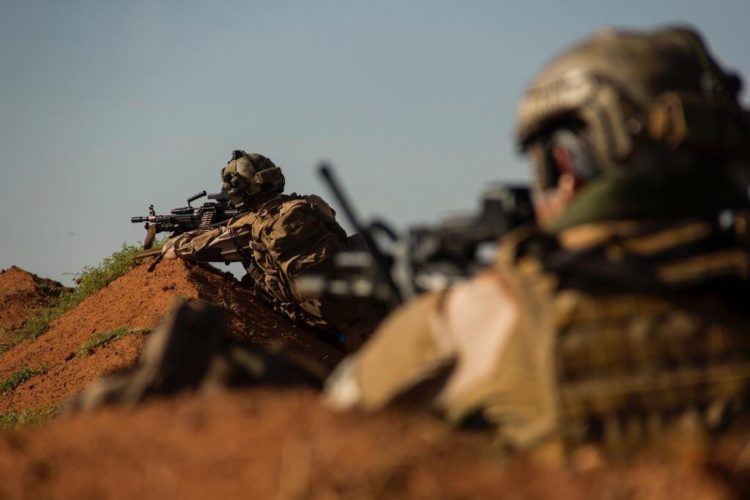During a visit to the Ivory Coast, French President Emmanuel Macron announced the success of a French military operation in Mali that resulted in the deaths of 33 Islamist militants.
The raid took place along Mali’s border with Mauritania, where an al-Qaeda affiliate group is known to operate in. The operation consisted of ground troops, attack helicopters and a drone. The mission targeted a forest area that French forces had previously attacked. During that previous attack, the French had incorrectly claimed that they had killed Amadou Koufa, a senior Islamist militant leader that has long been hunted in the Sahel.
It remains unclear whether Koufa was the target of the operation. A spokesman for the French army’s chief of staff declining to comment.
In addition to the killing of the 33 militants, Macron also announced that French troops had managed to “take one prisoner and free two Malian gendarmes who had been held hostage.”
Last month, France lost 13 soldiers during a helicopter crash in what was the single biggest loss of life for the French military since an attack in Beirut in 1983. Mounting casualties have raised concerns domestically about whether the country’s involvement in foreign wars has been worth it.
According to the French army command, French forces in Tiger attack helicopters used a drone reaper which enabled them to be guided into the forest where Katiba Macina, Koufa’s group, operates. Koufa is simply one of the many deputies of Iyad Ag Ghali, the leader of Mali’s most notable Islamist fighting force: Jama’at Nusrat al-Islam wal-Muslimin (JNIM). The group has carried out numerous attacks both within Mali as well as in neighbouring Burkina Faso.
France currently has approximately 4,000 soldiers across West Africa engaging in counter-insurgency as part of Operation Barkhane. Countries where French troops are deployed include Mali, Mauritania, Niger, Burkina Faso and Chad.
The United Nations deploys 13,000 peacekeepers in Mali.
Despite billions of dollars having been poured into the Sahel, it remains rocked by instability. The Malian government has managed to recapture territory with the help of French forces; but it has not resolved the underlying instability, with the violence increasingly spreading to neighbouring states. The Malian government spokesman, Yaya Sangare, did praise the raid stating that he was “happy that the fight against terrorism is taking a more offensive turn.”
This coming January, leaders of five countries in the Sahel are expected to meet in Paris in order to discuss potential strategies to tackle wider political and economic challenges that are further inflaming tensions in the region.
Already have an account? Sign In
Two ways to continue to read this article.
Subscribe
$1.99
every 4 weeks
- Unlimited access to all articles
- Support independent journalism
- Ad-free reading experience
Subscribe Now
Recurring Monthly. Cancel Anytime.











COMMENTS